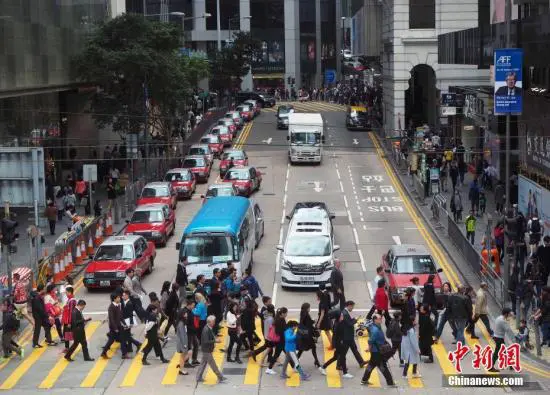This year, China celebrates the 40th anniversary of the adoption of the reform and opening-up policy, a landmark program that transformed the once impoverished nation into the world's second-largest economy.
The scheme was initiated by then Chinese leader Deng Xiaoping (1904-1997), who died today 21 years ago.
While Chinese President Xi Jinping vowed to comprehensively deepen reform and open China more to the world, today's reform drive is different from that of the past decades, as the country enters a new era and its citizens long for a more dignified life and better environment.
December 1978: Deng Xiaoping at the Third Plenary Session of the 11th CPC Central Committee. /Photo via People's Daily
Historic turning point
The Third Plenary Session of the 11th Communist Party of China (CPC) Central Committee in December 1978, which ended with then Chinese Vice Premier Deng's speech rallying political support for reform, symbolized a historic turning point in the country.
Since then, China has embarked on widespread economic reforms in both rural and urban areas, gradually replacing its planned economy with a system prioritizing the market's role. Meanwhile, the country has set up special economic zones and increasingly opened its market to the world.
Shanghai in east China has become a global financial hub. /Xinhua Photo
When popular confidence in the program was eroded following economic overheating and a rise in corruption and other crimes in the late 1980s, Deng paid an inspection tour (known as the "Southern Tour") to the front line of reform and opening-up in south China in early 1992. During his visit, he delivered remarks that reaffirmed the nation's commitment to further reform and opening-up.
Growing over 200 times in 40 years
China has witnessed dramatic transformation over the past four decades. For example, its gross domestic product (GDP) reached 82.71 trillion yuan (about 13.06 trillion US dollars) last year, about 230 times that of 1978. The country has lifted nearly 800 million people out of poverty and is on track to eliminate poverty by 2020.
One anecdote involving Deng shows how much China has changed in its openness to the global market: During a diplomatic tour overseas in 1974, he spent the only 20 US dollars he had to buy croissants as exotic gifts for other Chinese leaders. Today, croissants are available at supermarkets and bakeries across China.
By the late 1970s, the People's Republic of China had its lawful seat restored in the United Nations and was normalizing ties with the United States and Japan. Today, it is a country that has hosted the Olympic Games, the World Expo and the Group of 20 summit. China has also become a key member in the World Trade Organization and an engine of the world economy.
Having proposed the concept of building a community with a shared future for mankind, the country will "keep contributing Chinese wisdom and strength to global governance," Xi, also general secretary of the CPC Central Committee, pledged in his report to the 19th CPC National Congress last October.
September 4, 2016: Chinese President Xi Jinping (C) and other leaders of the G20 members walk into the venue of the G20 Summit in Hangzhou, east China's Zhejiang Province. /Xinhua Photo
From quantity to quality
As China's reform drive deepens, it has begun to upgrade the program to make its development fairer and more sustainable. The era is changing.
"The country should allow some regions and people to get rich first and then gradually push for common prosperity," Deng said during his famous Southern Tour in 1992.
1992: Deng Xiaoping (C) inspects south China. /Xinhua Photo
The remarks were made on the basis of the ruling party's assessment that the principal contradiction in China was the "ever-growing material and cultural needs of the people" versus "backward social production."
Thus Deng emphasized: "Development is the hard truth."
Authorities at different levels used to make every effort to boost GDP growth – sometimes at the expense of fairness, sustainability and the environment.
Now, China is shifting its focus from quantity to quality in terms of development and reform, trying to address the drawbacks previously exposed.
June 23, 2017: A black-necked crane looks after its chicks after they hatched in the Qiangtang nature reserve, southwest China's Tibet Autonomous Region. /Xinhua Photo
"While China's overall productive forces have significantly improved and in many areas our production capacity leads the world, our problem is that our development is unbalanced and inadequate," Xi noted in his report to the 19th CPC National Congress.
According to the document, China has entered a new era in which the principal contradiction has become "unbalanced and inadequate development" versus "the people's ever-growing needs for a better life."
Xi, presiding over the world's largest-scale set of reforms, vowed to "build China into a great modern socialist country that is prosperous, strong, democratic, culturally advanced, harmonious, and beautiful."
(CGTN)
 简体中文
简体中文

